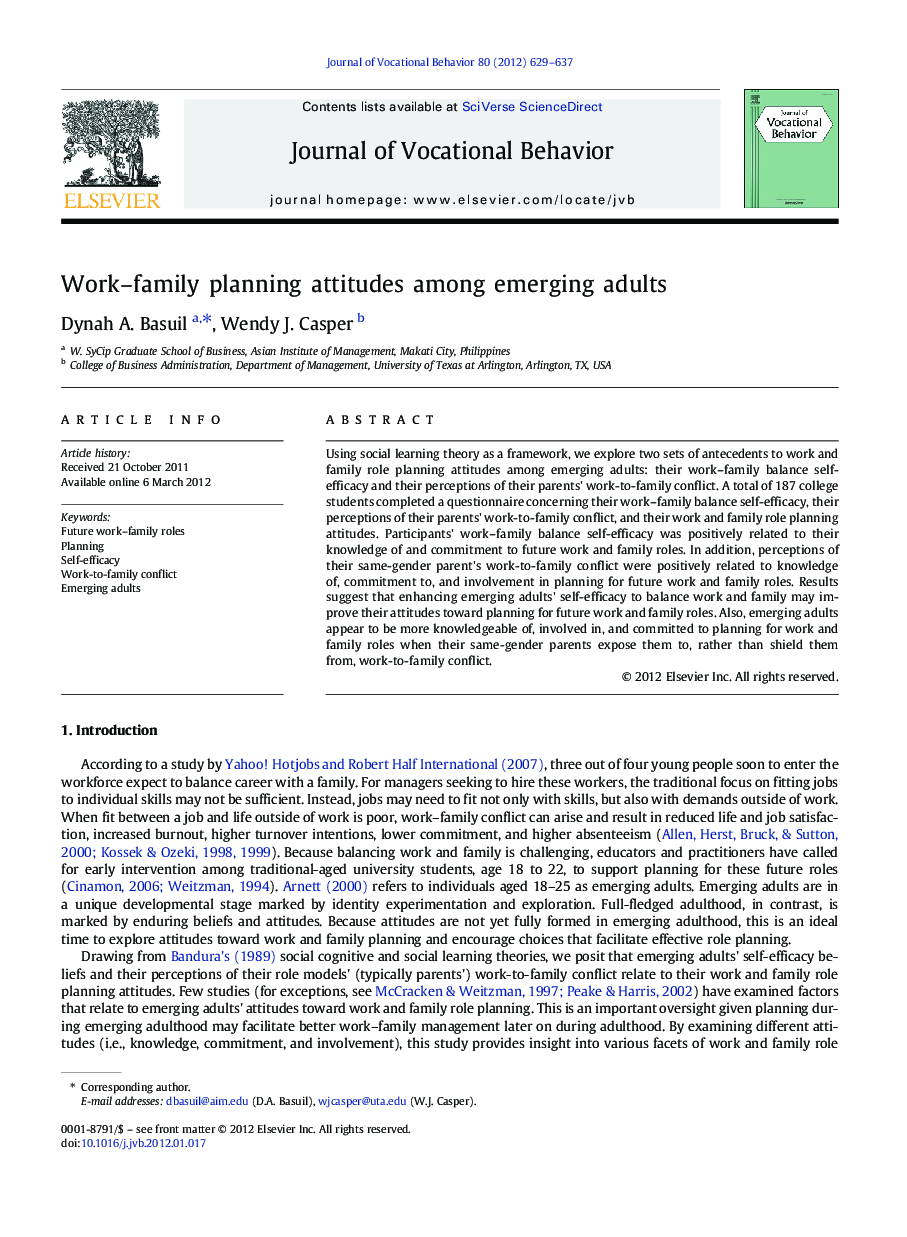| Article ID | Journal | Published Year | Pages | File Type |
|---|---|---|---|---|
| 887004 | Journal of Vocational Behavior | 2012 | 9 Pages |
Using social learning theory as a framework, we explore two sets of antecedents to work and family role planning attitudes among emerging adults: their work–family balance self-efficacy and their perceptions of their parents' work-to-family conflict. A total of 187 college students completed a questionnaire concerning their work–family balance self-efficacy, their perceptions of their parents' work-to-family conflict, and their work and family role planning attitudes. Participants' work–family balance self-efficacy was positively related to their knowledge of and commitment to future work and family roles. In addition, perceptions of their same-gender parent's work-to-family conflict were positively related to knowledge of, commitment to, and involvement in planning for future work and family roles. Results suggest that enhancing emerging adults' self-efficacy to balance work and family may improve their attitudes toward planning for future work and family roles. Also, emerging adults appear to be more knowledgeable of, involved in, and committed to planning for work and family roles when their same-gender parents expose them to, rather than shield them from, work-to-family conflict.
► We study factors that affect emerging adults' work–family role planning attitudes. ► Social learning theory is utilized to understand work–family role planning attitudes. ► Work–family role planning attitudes are positively associated with self-efficacy to balance work and family. ► Work–family role planning attitudes increase with work–family conflict perceived from same-gender parent.
